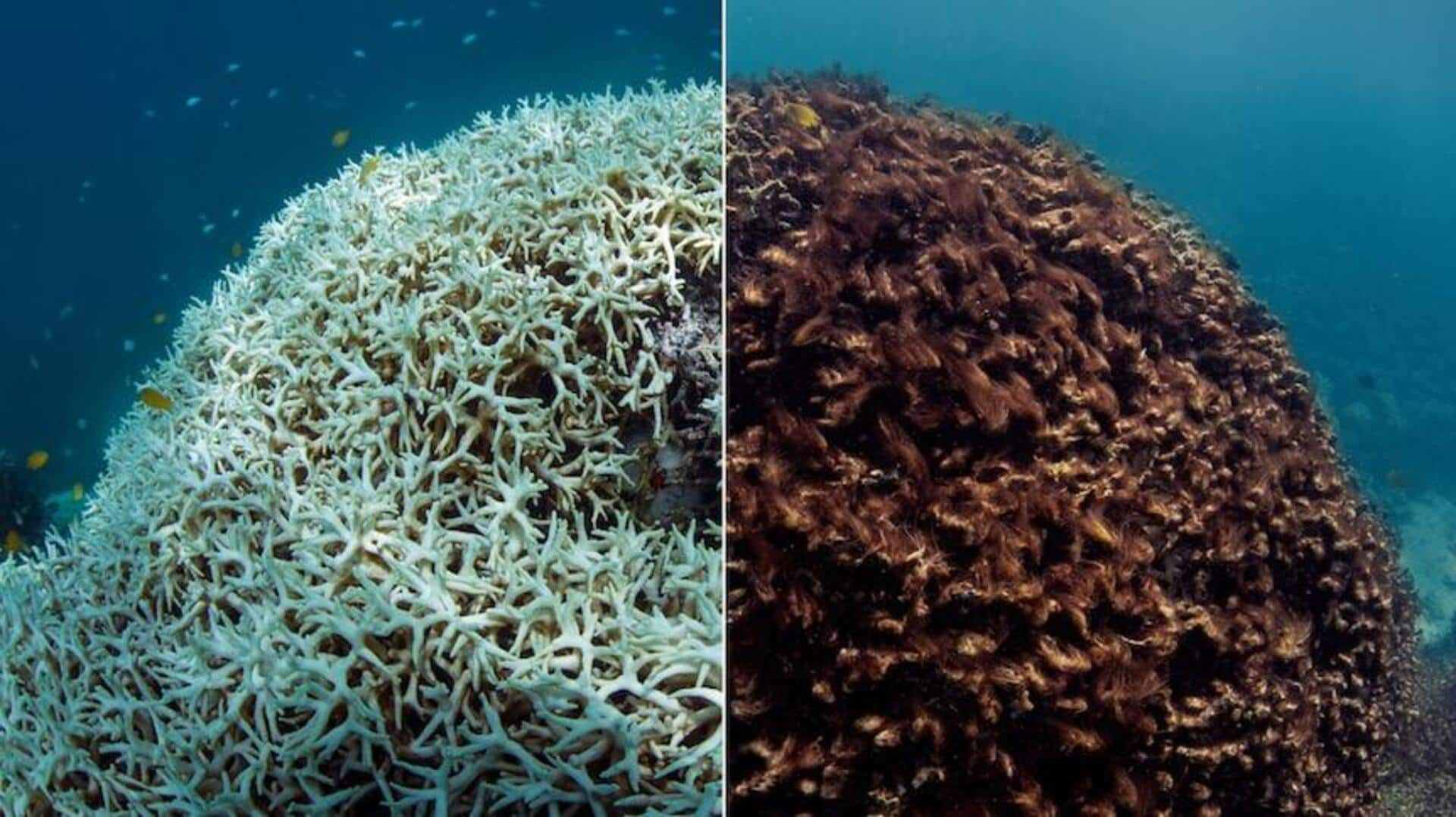
Humanity crosses first climate tipping point as coral reefs destabilize
What's the story
A major report by 160 scientists has warned that the planet has crossed its first climate tipping point: the widespread death of coral reefs. The study highlights how human activities, like burning fossil fuels and raising temperatures, are causing extreme weather events and threatening Earth's critical systems. Tim Lenton from the University of Exeter's Global Systems Institute said we are nearing multiple tipping points with devastating consequences for people and nature.
Coral crisis
Coral reefs facing worst mass bleaching event
The report highlights that since 2023, the world's coral reefs have been facing the worst mass bleaching event on record due to rising ocean temperatures. Over 80% of these reefs are affected, transforming vibrant underwater ecosystems into bleached, seaweed-dominated landscapes. Mike Barrett from WWF UK warned that unless global warming is reversed, extensive reefs as we know them will be lost.
Impact assessment
Loss of reefs could have far-reaching consequences
The report stresses that the loss of coral reefs would have far-reaching consequences. These ecosystems are critical habitats for marine species, play a key role in food security, contribute trillions to the global economy, and protect coastal areas from storms. The study also warns that if temperatures continue to rise, more tipping points will be crossed as we are likely to exceed the 1.5-degree Celsius warming limit set by global agreements.
Tipping point
Potential collapse of ocean currents
One of the most alarming tipping points is the potential collapse of the Atlantic Meridional Overturning Circulation (AMOC), a critical network of ocean currents. This could have catastrophic global consequences, including freezing some parts of the world, heating others, disrupting monsoon seasons and raising sea levels. Barrett warned that there is now a risk that collapse could occur within the lifetime of people born and living on Earth today.
Policy critique
Report criticizes current policies and international agreements
The report criticizes current policies and international agreements for being designed for gradual changes, not abrupt, irreversible and interconnected shifts. Manjana Milkoreit from the University of Oslo's Department of Sociology and Human Geography said how governments respond now could shape the Earth system for a very long time. The study calls for rapid reduction in planet-heating pollution and scaling up carbon removal from the atmosphere to mitigate these tipping points.
Optimism
Positive trends in global response to climate change
Despite its dire warnings, the report also notes some positive trends such as the rapid global adoption of solar power, electric vehicles, batteries and heat pumps. Lenton emphasized that while we may overshoot 1.5 degrees Celsius, the key is to limit further warming above this level and bring temperatures back down as quickly as possible. The report comes just a month ahead of COP30 in Brazil where countries are expected to outline their emission reduction goals for the next decade.